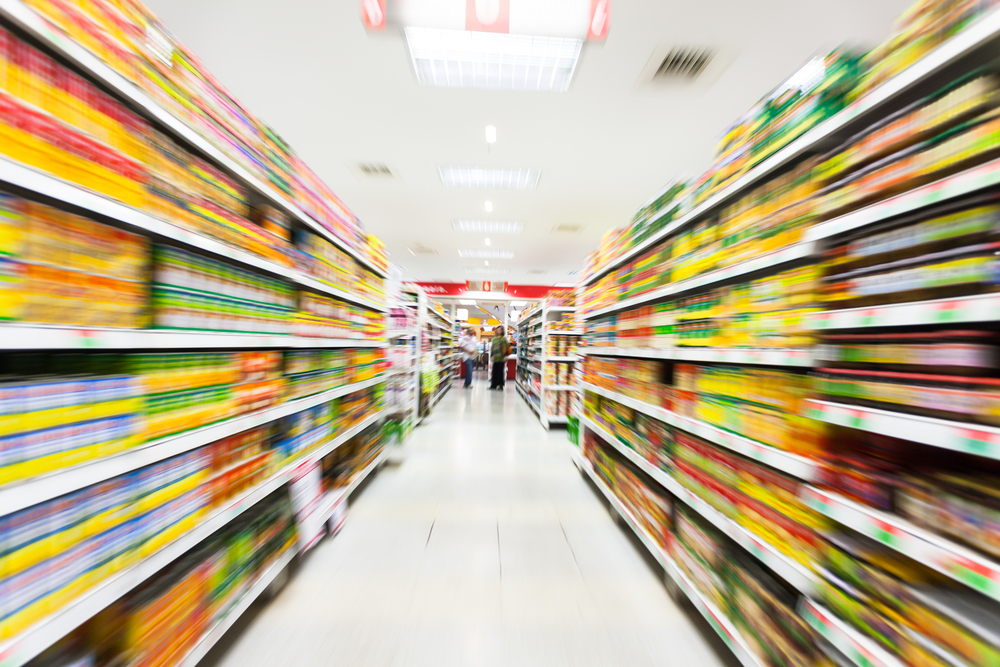Market Talk: Players Grapple With Shifting Environment, Consumer Habits

Nóra Hevesi, head of communications and campaigns at Tesco Hungary.
Major players in the fast-moving consumer goods sector are, as you would expect, keeping a close eye on how their market is shaped by rapidly changing consumer habits. The Budapest Business Journal looks at the latest trends and what the industry says is in store for the near future.
The FMCG sector has seen its fair share of transformation in the past few years, significantly affected by the Coronavirus pandemic. The outbreak increased the price sensitivity of buyers. Since COVID hit, a shift towards the lower-priced product segment has surfaced.
“This resulted in an accelerated market growth of discount stores and an increased demand for cheaper, own-brand products in the super- and hypermarket segment,” Nóra Hevesi, head of communications and campaigns at Tesco Hungary, tells the BBJ. The latter tendency still trumps high-quality, more expensive product sales.
When the possibility of a lockdown first appeared on the horizon two years ago, panic buying hit and people emptied grocery stores.
“At the beginning of the COVID pandemic, in March 2020, some consumers resorted to stockpiling,” Krisztina Hittner, PR team leader at DM Drogerie Markt Kft., says. She adds that demand for hygienic products also skyrocketed, triggering supply chain problems for the whole sector.
Fear of infection and the introduction of lockdown measures discouraged people from visiting brick and mortar outlets and boosted online shopping, a trend that is here to stay. The availability, safety and convenience of digital shopping have transformed consumer habits. [See “Online FMCGs Reap Fruit of Pandemic’s Disruption,” page 17.]
Buyers’ habits changed beyond a simple move to digital channels, though. Consumers’ desire for bulk purchases at the beginning, coupled with less frequent store visits, encouraged bigger FMCG baskets on checkout both in value and product quantity.
“The average basket value has been increasing since then, influenced now primarily by the growing inflation rate,” Hevesi of Tesco notes.
Waves Shape Habits
The various pandemic waves swayed consumers’ boats differently. FMCG’s focus was on providing customers with an adequate food supply during the first wave, even in the face of bulk buying.
“The recruitment of additional workforce was necessary, so we hired 400 extra colleagues with fixed-term contracts to help us run the business as smoothly as possible,” Hevesi says. As team cooperation got stronger, Tesco quickly adapted to the new normal so the British retail giant could speed up developments.
With the second wave lacking the outright shock factor of its predecessor, bulk buying was “replaced by spending restraint from households, and the number of transactions decreased by 15-20% while the basket value increased proportionally,” according to Hevesi.
However, once customers started adapting to a more consistent and conscious shopping pattern during the fall of 2020, newly-imposed curfews made the scheduling of shopping more difficult. Yet, an emerging scientific miracle offered a silver lining.
“The successful launch of the vaccination program resulted in an early ease, and then termination, of restrictions in Hungary compared to our [Tesco’s] other Central European markets, which helped customers get back to a shopping routine similar to their former one,” Hevesi says.
Nevertheless, shoppers still plan in advance today and tend to limit the frequency of store visits to buy everything they need at one go instead of making numerous ad-hoc top-ups.
Tesco says it has not experienced performance disruption or fluctuation in the domestic supply chain. However, maritime transport issues of non-food items sourced overseas have generated delays and shipping costs have increased locally.
“Even though the [supply chain] situation negatively affects every retailer, Tesco was able to prepare for the most intensive periods by negotiating with its partners and fixing volumes of transport capacities in advance,” Hevesi says.
Unlikely Marriage
FMCGs and gas stations have continued to join forces in this new environment, accelerating a trend that was already there. OMW petrol stations have teamed up with Spar, just as Shell has with Tesco, to offer a shopping experience for consumers on the road, navigating the curfews and restrictions.
“To reach consumers at every touchpoint, last year we launched a joint shopping experience concept with Shell and opened the first Shell-Tesco mini shops at Shell service stations across the country,” Hevesi says. This new arrangement operates seven days a week.
“Through our collaboration with Shell, we are able to offer our customers the right range of products for everyday shopping in a convenient way, and it complements our wide mix of shopping channels from hypermarkets, ‘Express’ stores and online,” she adds. Currently, Tesco operates 23 mini shops at gas stations, with plans to expand the network further this year.
Customer’s enhanced price sensitivity has also pushed Tesco to focus more on its loyalty program. “We want to help our customers control their expenditures by making a few hundred products available at lower prices if they use their Tesco loyalty card: the Clubcard. This way, they can save money and participate in loyalty initiatives for extra discounts,” Hevesi says. Registration for the loyalty program is free and open to anyone.
As the uptake of vaccine boosters increases and some European countries are optimistic enough to ease restrictions (Denmark and Sweden being the latest to follow the example of the United Kingdom), expectations for a life that is less affected by COVID are increasing. However, the FMCG sector will need to remain agile and alert.
According to a joint global survey by EY and MIT, consumers are rapidly changing their purchasing habits and opinions about available products. Online reviews and social media influencer activity are the main drivers for these habit shifts. EY and MIT found that in this environment, FMCG market players can only plan two years ahead compared to the previous industry standard of five years.
EY insists that flexibility is crucial in such an environment; the speed of stores adapting to market changes is vital for maintaining growth and hitting targets.
“Business leaders are looking for future-proof strategies. However, there is no one-size-fits-all solution. In this unexpected market environment, businesses need to come up with a custom-made operational model, which needs to be continuously monitored,” warns László Roland, an associate partner at EY Hungary.
This article was first published in the Budapest Business Journal print issue of February 11, 2022.
SUPPORT THE BUDAPEST BUSINESS JOURNAL
Producing journalism that is worthy of the name is a costly business. For 27 years, the publishers, editors and reporters of the Budapest Business Journal have striven to bring you business news that works, information that you can trust, that is factual, accurate and presented without fear or favor.
Newspaper organizations across the globe have struggled to find a business model that allows them to continue to excel, without compromising their ability to perform. Most recently, some have experimented with the idea of involving their most important stakeholders, their readers.
We would like to offer that same opportunity to our readers. We would like to invite you to help us deliver the quality business journalism you require. Hit our Support the BBJ button and you can choose the how much and how often you send us your contributions.







